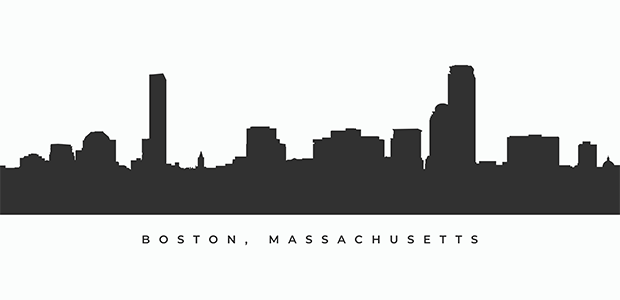
Startup hotspot: Boston
The USA is a hub of startup activity, and according to Startup Genome’s Global Startup Ecosystem Ranking (2020-2024), nine out of the top 20 startup ecosystems globally can be found in the USA, and Boston ranks sixth worldwide.
PitchBook’s VC Ecosystem Rankings compares global cities based on the size and maturity of their startup networks. In its 2024 rankings, Boston ranked fourth, with some interesting statistics:
- Market score: 61.0
- Deal value: $114.3 billion
- Deal count: 5,842
- Exit value: $168.8 billion
- Fundraising value: $149.1 billion
- Fundraising count: 1,200
Boston is definitely an impressive startup ecosystem that needs more attention. The city might not grab headlines like Silicon Valley, or churn out unicorns at the pace of New York, but what it lacks in hype, the city makes up for in substance.
Universities
At the heart of Boston’s entrepreneurial success lay the academic institutions that surround the city.
Harvard University and Massachusetts Institute of Technology (MIT), two of the best universities in the USA, are just a stone’s throw away in Cambridge. Boston University, as well as Northeastern, have created a constant stream of talent, research, and spin-out ventures.
Founders in Boston often emerge from academia, bringing with them the kind of scientific rigour and technical depth that makes Boston synonymous with hard tech. Due to the level of education in the area, the region attracts talent from across the globe. The universities do not only provide intellectual capital, but they actively support startup development through incubators, pitch competitions, and research partnerships.
The MIT Martin Trust Center for Entrepreneurship and Harvard Innovation Labs have both played pivotal roles in spinning out companies in sectors such as robotics, quantum computing, and clean energy. The result: a steady flow of highly educated founders equipped with technical know-how and early-stage support.
Sub-sector strengths
Boston has a strong startup ecosystem, but three sectors in particular stand out. In these sub-sectors, startups thrive, as the infrastructure for support is in place, and an environment that encourages these industries.
Life sciences
Boston has developed a reputation for its dominance in the life sciences sector. Kendall Square in Cambridge, just across the Charles River, became, and remains, one of the most densely packed biotech clusters globally. Startups in therapeutics, diagnostics, and medical devices benefit from proximity to teaching hospitals such as Massachusetts General Hospital and Boston Children’s Hospital, as well as from talent pipelines and partnerships with research labs.
Funding in the sector remains robust, with investors backing companies developing mRNA technologies, gene therapies, and AI-driven drug discovery platforms.
Fintech
Home to many financial institutions, hedge funds, and private equity firms, Boston has both a robust financial industry and a lively fintech ecosystem.
Boston is home to some fintech support hubs, that are driving this sub-sector of technology, especially when it comes to startups. FintechWomen supports Boston-based women in advancing professionally and contributes to building a more diverse fintech community. FinTech Sandbox, a non-profit based in Boston, drives global fintech innovation and encourages collaboration by providing startups with access to critical data and tools to thrive. Its mission is to advance financial innovation and lower barriers for early-stage startups, by providing free access to data and educational resources for promising fintech entrepreneurs around the world building the future of financial innovation.
FinTech Sandbox also hosts the annual Boston FinTech Week, a week-long gathering that brings the fintech community together to discuss the advances in the industry that are breaking boundaries and bringing the industry forward.
AI, big data, and analytics
Boston’s AI and data startups have emerged from a foundation of rigorous academic research and a collaborative innovation culture. Startups such as PathAI applied deep learning to pathology diagnostics, while DataRobot pioneered automated machine learning platforms used across enterprise sectors.
With a focus on applied AI, companies tackle real-world problems – whether in financial forecasting, autonomous systems, or ethical data governance. Investment in the sector remained strong, bolstered by demand for explainable AI, regulatory compliance, and productivity tools designed for scale.
Quality of life and talent retention
Boston’s combination of intellectual energy and quality of life make it attractive for founders looking to build sustainable companies. Though not immune to the challenges of high housing costs and competition for skilled workers, the city retains many graduates as inhabitants who value its cultural institutions, walkable neighbourhoods, and access to the outdoors.
The city also demonstrates a growing commitment to diversity and inclusion, which is important, especially when it comes to tech and hiring within the industry. It has multiple programmes aimed at increasing access to capital and mentorship for underrepresented founders.
A measured, mission-driven ecosystem
Boston’s startup ecosystem does not rely on hypergrowth or unicorn valuations to define its success. Rather, it focuses on building meaningful technologies rooted in research and public good. Whether in life sciences, climate tech, or AI safety, startups in Boston often share a mission-driven ethos shaped by its academic and civic environment.
In an era of rapid digital expansion and shifting investment priorities, Boston’s measured, science-led approach offers a reminder that innovation could also be methodical, collaborative, and long-term. Not everything has to be driven by a hype cycle.
Maybe take a look at what Boston could offer you and your startup. Or if you’re an aspiring entrepreneur looking for universities to study in, Boston may be somewhere to relocate to.
This article originally appeared in the May/June 2025 issue of Startups Magazine. Click here to subscribe

